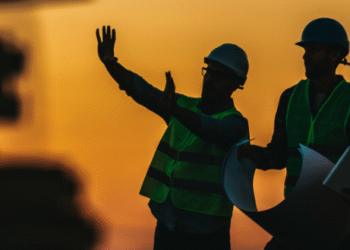This webinar, in association with Oracle, discusses the benefits, opportunities and challenges of introducing digital technologies into capital projects
There has been significant growth in innovation and digitalisation within oil & gas capital projects, as organisations try to do more with less. Digitalisation brings enhanced performance and increased productivity, creating greater value to the business. The Covid-19 pandemic resulted in a marked reduction in capital project expenditure in oil & gas for 2020 and 2021 (see the video for details). Despite this, some organisations continue to invest in digital technologies, because of the advances they bring – not just cost savings, but benefits such as time management and improved safety.
Core reasons for digitalisation
- Model centric: Adding a spatial dimension to most transactions and processes in the Plan-Build-Operate lifecycle
- Digital collaboration: The team using a common platform to plan, record, and share information
- Remote construction and facility management: Leveraging technology to manage activities remotely.
- Health & Safety: Always a focus. COVID has increased the urgency and complexity of delivering on worker safety
- Productivity improvement: Increase the output of the job site and office workers
- Leveraging data: Capture the generated data improve processes throughout the plan. build, operate lifecycle
- Project optimisation: Improve the ability to deliver on schedule and within budget.
- Incorporating Artificial Intelligence (Al) / Machine Learning (ML): understanding the impact of Al/ML on the plan, build, operate lifecycle and developing an Al/ML strategy.
(Source: Oracle)
Badr Burshaid, Programme Director, Saudi Aramco, said oil companies have been developing strategies to maximise the use of digital technologies. Saudi Aramco, for instance, has created a digital transformation office and officer, who holds a senior position within the company. In addition, Aramco has identified 16 digital innovation domains for projects, such as smart planning, field mobility, digital twin, autonomous project updates and remote-controlled field vehicles, he added.
Digital transformation projects cannot be done alone, and do require expert help. It’s also important to involve a broad spectrum of stakeholders from the organisation, not just to provide feedback, but also to champion any change. Pilot studies should be manageable, and with a clear goal, rather than trying to do much. It is also the stage where any problems can be resolved before the technology is rolled out to a wider user group.
“I’m a strong believer that we should democratise the process, create a set of strategic initiatives, orchestrate them and bring all players – from outside the organisation as well as inside – [to] set the scene and take them through the journey,” said Aref Boualwan, Strategy Officer, World Economic Forum Group, and Manager – Digital Transformation, CCC.
During the discussion, speakers gave examples of digital technology use that had provided direct benefits to a project, including RFID tagging, Al coupled with cameras, use of AI to detect risk and smart workforce systems. The growing importance of data, and how to manage this effectively, and some nuances of cloud use were also discussed.
Speaking on How innovative digital technologies can improve the delivery of capital projects in the energy & natural resources industries were
- Badr M. Burshaid, Programme Director, Saudi Aramco
- Keith Churchill, Manager of Construction Technology, Bechtel Global Corporation
- Geoff Roberts, Director, Global Industry Strategy (Energy & Resources), Oracle Construction and Engineering
- Aref Boualwan, Strategy Officer, World Economic Forum Group and Manager – Digital Transformation, CCC
- John Macvarish, Account Executive, Smartvid.io
Video editor: Kieran Popovski-Jones














